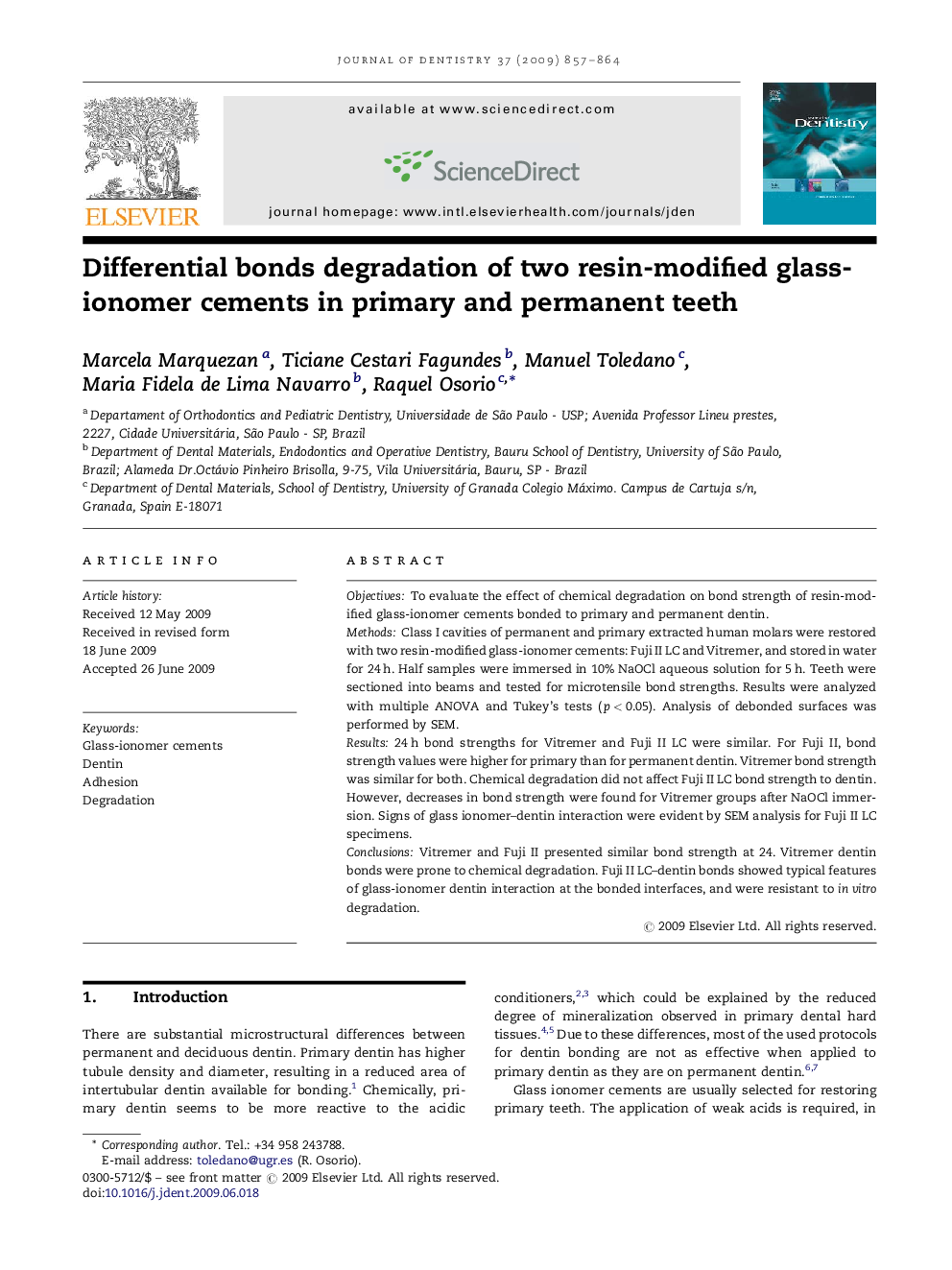| Article ID | Journal | Published Year | Pages | File Type |
|---|---|---|---|---|
| 3145609 | Journal of Dentistry | 2009 | 8 Pages |
ObjectivesTo evaluate the effect of chemical degradation on bond strength of resin-modified glass-ionomer cements bonded to primary and permanent dentin.MethodsClass I cavities of permanent and primary extracted human molars were restored with two resin-modified glass-ionomer cements: Fuji II LC and Vitremer, and stored in water for 24 h. Half samples were immersed in 10% NaOCl aqueous solution for 5 h. Teeth were sectioned into beams and tested for microtensile bond strengths. Results were analyzed with multiple ANOVA and Tukey's tests (p < 0.05). Analysis of debonded surfaces was performed by SEM.Results24 h bond strengths for Vitremer and Fuji II LC were similar. For Fuji II, bond strength values were higher for primary than for permanent dentin. Vitremer bond strength was similar for both. Chemical degradation did not affect Fuji II LC bond strength to dentin. However, decreases in bond strength were found for Vitremer groups after NaOCl immersion. Signs of glass ionomer–dentin interaction were evident by SEM analysis for Fuji II LC specimens.ConclusionsVitremer and Fuji II presented similar bond strength at 24. Vitremer dentin bonds were prone to chemical degradation. Fuji II LC–dentin bonds showed typical features of glass-ionomer dentin interaction at the bonded interfaces, and were resistant to in vitro degradation.
